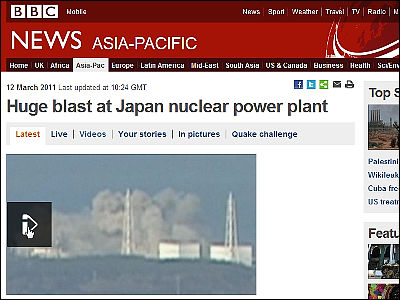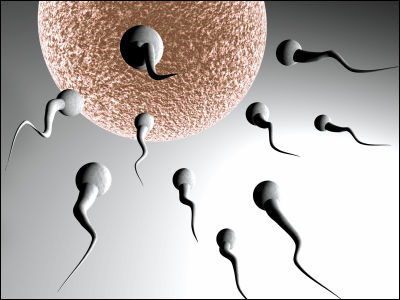Radiation-induced genetic damage turns out not to be passed on to children

Radiation-related genomic profile of papillary thyroid cancer after the Chernobyl accident | Science
https://science.sciencemag.org/content/early/2021/04/21/science.abg2538
Genetic effects of Chernobyl radiation --ScienceDaily
https://www.sciencedaily.com/releases/2021/04/210422150435.htm
Two studies by a team of researchers from the National Cancer Institute have been announced.
In the first study, the whole genome of 130 people born between 1987 and 2002 and 105 pairs of their parents to investigate the question 'whether radiation exposure causes a genetic change from parent to child' Was analyzed.
Either or both of the parents surveyed were either neighbors of the Chernobyl nuclear power plant or workers who cleaned up the accident site. Long-term exposure to drinking milk from cows raised in pastures contaminated with fallout was also evaluated. The team then analyzed the genomes of adult children to look for an increase in new mutations called 'de novo mutations' that were not inherited from parents.

The results did not show an increase in the number or variety of de novo mutations in children born between 46 weeks and 15 years after the accident. The number of de novo mutations found in the children's genomes was about the same as in the general population, so the research team said, 'Even if there is a radiation effect from the nuclear accident, the health effects on the next generation. Is minimal. '
Radiation destroys the bonds of DNA inside cells with its energy. DNA is what should be called a 'blueprint of cells', and as a result of damage to this DNA or abnormalities during repair, canceration of cells and dysfunction of tissues occur.

Studies have shown that more than 95% of thyroid cancer tumors found in people exposed to high doses of radiation from the Chernobyl accident have been abnormally repaired due to damaged gene parts involved in the expression of mitogen-activated protein kinase. It turned out that it was caused by the fact that it was stolen. On the other hand, it was found that most of the thyroid cancers found in non-exposed persons and those exposed to low-dose radiation were caused by point mutations in which the base sequence of DNA was pinpointly mutated. .. Lindsay Morton, deputy director of the Department of Cancer Epidemiology and Genetics at the National Cancer Institute, said, 'This study links the genetic characteristics of tumors with radiation levels, which are risk factors that can cause cancer. It's very interesting to see it. '
Stephen Channock, Dean of the Department of Cancer Epidemiology and Genetics at the National Cancer Institute, said, 'Since the atomic bombs were dropped on Hiroshima and Nagasaki, the effects of radiation on the human body due to the nuclear accidents in Chernobyl and Fukushima again. Questions have been raised. Recent advances in DNA sequencing technology have enabled comprehensive genomic analysis, allowing us to tackle some important issues. '
'I think this result is very encouraging for those who lived in Fukushima at the time of the 2011 accident. Japan's radiation levels are lower than those recorded in Chernobyl. Because it turns out that. '
Related Posts:
in Science, Posted by log1i_yk







